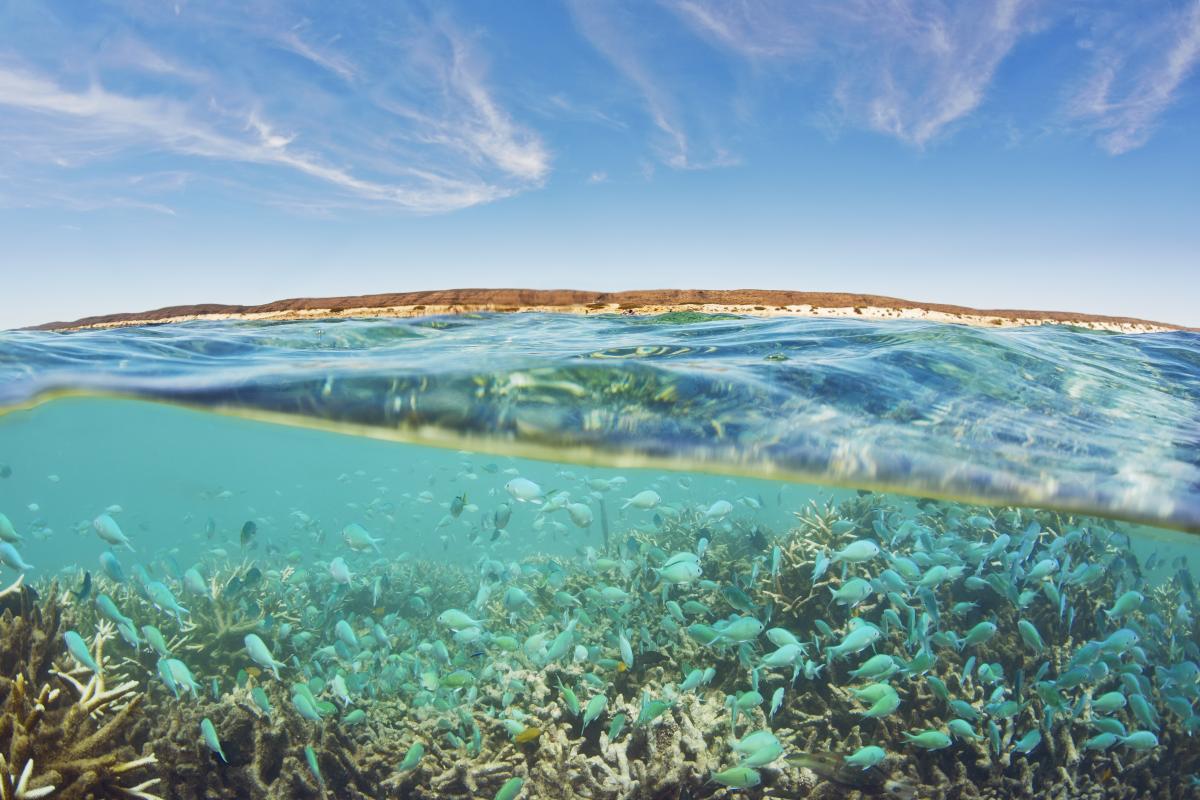About this place
Take a short walk along the track to the lookout, overlooking the lagoon and outer reef. The Ningaloo Reef is around 300m from shore, the narrowest section of lagoon along the entire Ningaloo Coast. The close proximity to the outer reef and narrow lagoon aids in the area having a high concentration of marine life.
Snorkel from shore and explore the shallow coral gardens, explore the abundance of fish and diverse invertebrates. Keep an eye out for turtles and sharks cruising by. Oyster Stacks should only be snorkelled during a high tide (minimum 1.2m) when there is sufficient water over the reef - please check at Milyering Discovery Centre for tide heights and times.
Remember that Oyster Stacks is in a sanctuary zone in Ningaloo Marine Park, please look but don't touch.
Safety information
Plan when to visit. Consider travelling with a personal location beacon (PLB). In the event you need to be rescued it could save your life!
- Oyster Stacks can experience strong currents and large swell, always assess the conditions before entering the water.
- It is your responsibility to ensure you have the required level of experience.
- Never snorkel alone, if in doubt, don’t go out.
- The shore is covered with sharp and slippery rocks, broken coral and shells, so wear appropriate footwear and be aware of any waves that may push you against the rocky shoreline.
- Take care of sharp oyster shells on the stacks. Avoid swim throughs, as you could easily be cut.
Western Shield - The Department of Biodiversity, Conservation and Attractions undertakes 1080 baiting at this location to reduce the impacts of feral cats and foxes on native wildlife.
Meat baits containing 1080 poison are laid in or around this area on an ongoing basis. 1080 is poisonous to humans and will kill domestic cats and dogs. Pets are not permitted in this park.
For further information contact your local Parks and Wildlife Service office or visit Western Shield.
Gallery
Activities
 Snorkelling
Snorkelling
 Swimming
Swimming
Plants, wildlife and fungi
Visit the Atlas of Living Australia for a list of species recorded within a 5km radius of Oyster Stacks.
Traditional Owners
We recognise and acknowledge Baiyungu, Thalanyji and Yinigurdira people as the traditional owners of Cape Range National Park and adjoining Ningaloo Marine Park. We are proud to be in joint management with the traditional owners to look after these special areas for future generations to enjoy.
